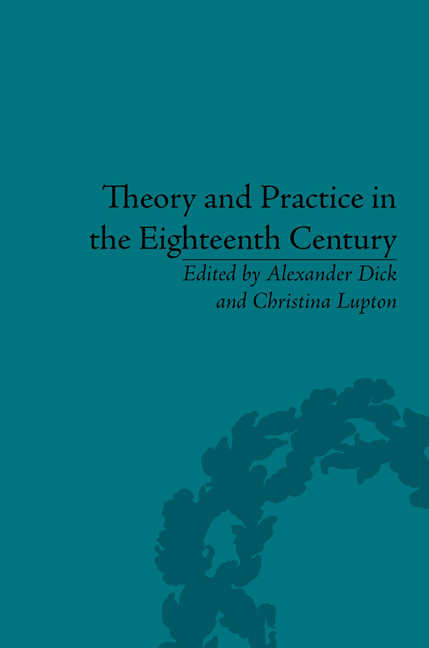Book contents
- Frontmatter
- CONTENTS
- Notes on Contributors
- Introduction
- I Writing Philosophy
- 1 Philosophy/Non-Philosophy and Derrida's (Non) Relations with Eighteenth-Century Empiricism
- 2 Locke'ss Desire
- 3 Philosophy and Politeness, Moral Autonomy and Malleability in Shaftesbury's Characteristics
- 4 Reid, Writing and the Mechanics of Common Sense
- II Reading Hume
- III Thinking Literature
- Notes
- Works Cited
- Index
2 - Locke'ss Desire
from I - Writing Philosophy
- Frontmatter
- CONTENTS
- Notes on Contributors
- Introduction
- I Writing Philosophy
- 1 Philosophy/Non-Philosophy and Derrida's (Non) Relations with Eighteenth-Century Empiricism
- 2 Locke'ss Desire
- 3 Philosophy and Politeness, Moral Autonomy and Malleability in Shaftesbury's Characteristics
- 4 Reid, Writing and the Mechanics of Common Sense
- II Reading Hume
- III Thinking Literature
- Notes
- Works Cited
- Index
Summary
Among the categories examined by the Enlightenment, few were so elusive as desire. Then as now, the term lent itself to an equal balance of meanings and vagaries. What did seventeenth- and eighteenth-century writers intend when they sought to demarcate the nature of motivation and name the experience of wanting? One answer is that they endeavored to bring sexuality into a new culture of expertise. ‘Desire’ became one of several areas of knowledge laid bare for the separate disciplines of moral philosophy and experimental science. But Enlightenment theorists also summoned the category to help explain institutions that dwelled outside the realm of the personal, such as the market, civil society and the aesthetic. The erotic seemed to have this special feature: it accounted for one's habits of mind and gave form to the grand systems of a secular culture often at the same time. Witness Bernard Mandeville's Search into the Nature of Society (1723): the ‘sociableness of man’, he there argues, ‘arises from these two things, viz. the multiplicity of desires and the continual opposition he meets with in his endeavours to gratify them’. The social order initiates a longing from which it also takes shape, hence the ‘search’ turns from the realm of public life to the inner world of the self: ‘I beg of my serious reader that he would for a while abate a little of his gravity and suffer me to examine these people separately, as to their inside and the different motives they act from’.
In the lair of feeling lies the map of society, and in the form of society reside the springs of affection. But that is not to say that the Enlightenment found it easy to navigate between the two. One way that we can get a sense of the effort that went into desire and to tracking it within the new, secular institutions of market and culture is to follow closely the changing meaning of the term. The following pages thus attempt something like a comparative philology of the erotic at the close of the British seventeenth century; they place the word ‘desire’ in what was arguably its most significant array of philosophical use and speculative meaning.
- Type
- Chapter
- Information
- Theory and Practice in the Eighteenth CenturyWriting Between Philosophy and Literature, pp. 31 - 50Publisher: Pickering & ChattoFirst published in: 2014



